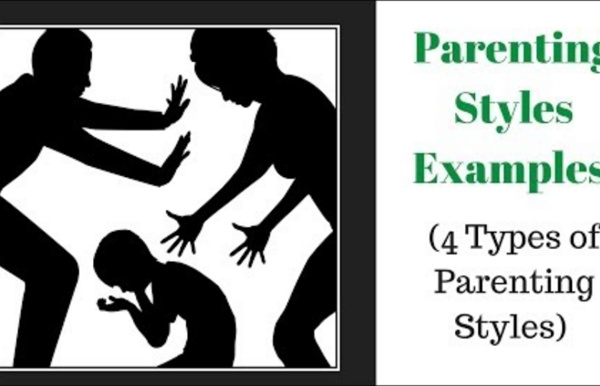



http://www.youtube.com/watch?v=WYU3-Sls5fQ
Related: Four Different Parenting StylesHow the Tiger, Dolphin, and Jellyfish Parents Differ Tiger parenting has been given much attention in the media. That said, in my book The Dolphin Way: A Parent's Guide to Raising Healthy, Happy, and Motivated Kids Without Turning Into a Tiger, I coined the terms dolphin and jellyfish parenting to explore other modes of behavior. The tiger parent is an authoritarian parent. Some tiger parents are authoritarian "directive" meaning pushing and directing their children. Other tiger parents are authoritarian "protective" meaning hovering and micromanaging their children. Either way, tiger parents usurp their child's sense of internal control and self-motivation.
Characteristics and Effects of Uninvolved Parenting Uninvolved parenting, sometimes referred to as neglectful parenting, is a style characterized by a lack of responsiveness to a child's needs. Uninvolved parents make few to no demands of their children and they are often indifferent, dismissive, or even completely neglectful. The Major Parenting Styles During the 1960s, psychologist Diana Baumrind described three different parenting styles based on her research with preschool-age children: authoritarian, authoritative, and permissive parenting. 80 Best Tips for Parenting The First 12 1. Be your best. Right now, your child thinks you're the greatest person in the world, perfect in every way. You're not, of course, but you're a powerful figure in his life. Strive to be a great role model.
Advanced Parenting Style Quiz for Parents Wondering what your parenting style is?Then take this advanced parenting style quiz to learn about what values, ideas and beliefs guide you as a parent.When you have completed this parenting style test after answering 10 parenting questions, you get to go in-depth with your specific parenting personality and discover many fascinating facets to your way of raising your children! Discover Your Parenting Style What Is Permissive Parenting? Permissive parenting is a type of parenting style characterized by low demands with high responsiveness. Permissive parents tend to be very loving, yet provide few guidelines and rules. These parents do not expect mature behavior from their children and often seem more like a friend than a parental figure. These parents tend to be the polar opposite of the so-called "helicopter parents." Instead of hovering over their children's every move, permissive parents are incredibly lax and rarely make or enforce any type of rules or structure. Their motto is often simply that "kids will be kids."
Nine Steps to More Effective Parenting Raising kids is one of the toughest and most fulfilling jobs in the world — and the one for which you might feel the least prepared. Here are nine child-rearing tips that can help you feel more fulfilled as a parent. 1. Parenting Style Quiz Instructions: This quiz is designed to help you better understand your parenting style. For each item, indicate how much you agree or disagree with the statement. This takes most people about 4 minutes to complete. Take your time and answer truthfully for the most accurate results.
The Definition of Authoritarian Parenting Authoritarian parenting is a parenting style characterized by high demands and low responsiveness. Parents with an authoritarian style have very high expectations of their children, yet provide very little in the way of feedback and nurturing. Mistakes tend to be punished harshly. 12 Ways to Become a More Authoritative Parent There isn’t a single formula for raising children well. After all, parenting isn’t an exact science. There’s definitely a bit of an art to good parenting. Researchers who examine parenting styles have consistently found authoritative parents raise happier and healthier children who are equipped to face real-world challenges. The good news is, everyone has the ability to become a more authoritative parent. And you can match authoritative parenting strategies to your child’s unique temperament to ensure you aren’t using a cookie-cutter approach to parenting.
VIDEO 2: Difference between permissive and authoritarian parenting Transcription: So there are two pretty typical parenting styles parents use. The first is permissive, and this is generally described as freedom without order. The parent will oftentimes give into the child to avoid a temper tantrum, a pushback, or a meltdown. They oftentimes use bribes as a way to get their kids to do what they want. On the flip side is an authoritarian style of parenting where the child really has very few choices in life and parents use threats and consequences and demands when they hit road bumps with their children.